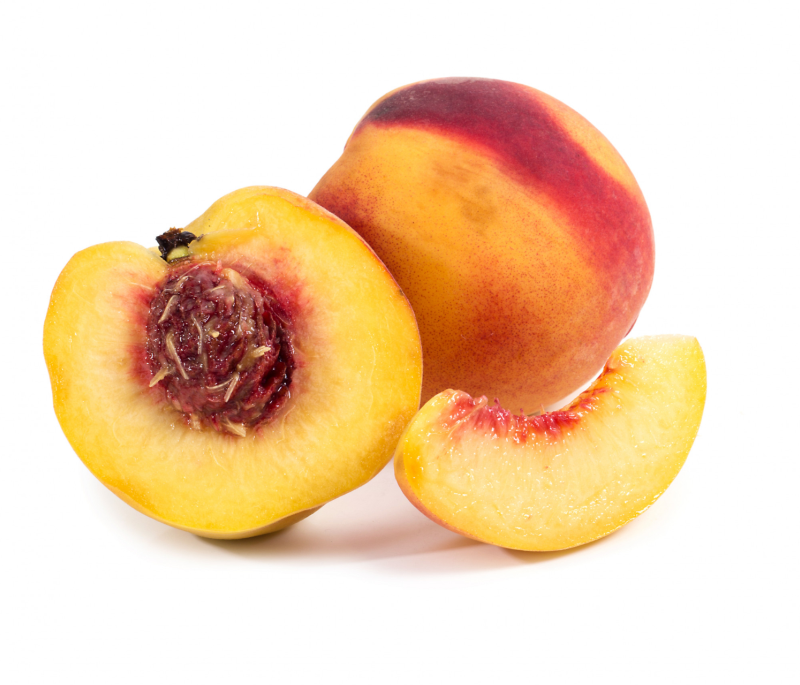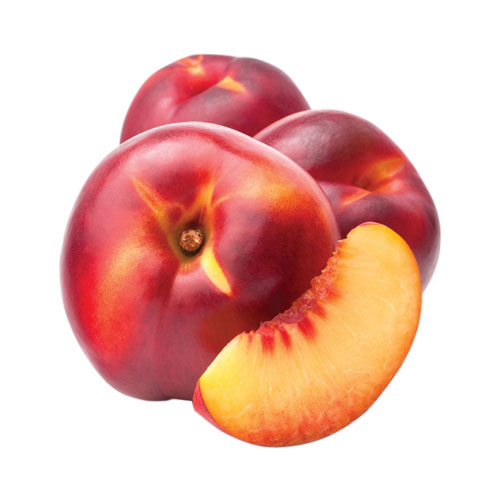Nectarine

Nectarine, known for its smooth skin and sweet, juicy flesh, is a popular fruit. It is very similar to a peach but has a smooth, fuzz-free skin. Nectarines are often eaten fresh but are also used in salads, desserts, and various dishes. These fruits are rich in vitamin A, vitamin C, potassium, and dietary fiber, providing numerous health benefits.
The origin of nectarines, like peaches, traces back to China. First cultivated there, this fruit spread westward along the Silk Road. Over time, it became widely grown in the Mediterranean regions, Europe, and the United States. Today, nectarines are grown in many warm climates, with leading producers including the United States (California), Spain, Italy, Greece, and Turkey.
Nectarine trees thrive in warm, sunny climates and grow best in well-drained, fertile soil. The ideal growing temperature ranges between 20-30°C. Nectarine trees are sensitive to frost, so it is important to grow them in areas with no frost risk. The soil pH should be between 6.0 and 7.0 and rich in organic matter.
Growing nectarines typically starts with planting young saplings. Young trees are carefully selected and planted to develop strong root systems. The soil should be well-prepared and enriched with organic fertilizers before planting. After planting, nectarine trees require regular watering and care. They need consistent moisture, especially during the growing season. Watering should keep the soil continuously moist but avoid waterlogging.
Regular fertilization of nectarine trees is also important. Using organic fertilizers and compost provides the necessary nutrients for the plants. Balanced fertilizers rich in nitrogen, phosphorus, and potassium are preferred. Additionally, pruning leaves and excess branches can enhance air circulation around the trees, making them more resistant to diseases.
Nectarines begin to bear fruit about 3-4 years after planting. The fruits are harvested when fully ripe and have developed a bright color. The harvesting process should be done carefully to avoid damaging the fruits. Nectarines can be eaten fresh or used in making jams, compotes, and desserts.
Nectarines offer numerous health benefits. Rich in vitamin A, vitamin C, potassium, and dietary fiber, this fruit helps strengthen the immune system, support skin health, and improve digestion. Additionally, nectarines are low in calories and can aid in weight management.
In conclusion, nectarines are versatile fruits with a wide range of culinary uses, thanks to their sweet and aromatic flavor. They are an ideal ingredient for preparing healthy and delicious meals and can be consumed fresh or processed. Growing nectarines requires care and attention, but the result is flavorful and nutritious products. These fruits will continue to hold their place at the table as a source of flavor and health.
Season Information
| January | February | March | April | May | June | July | August | September | October | November | December |
|---|---|---|---|---|---|---|---|---|---|---|---|
 |  |  |  |  |  |  |  |  |  |  |  |

